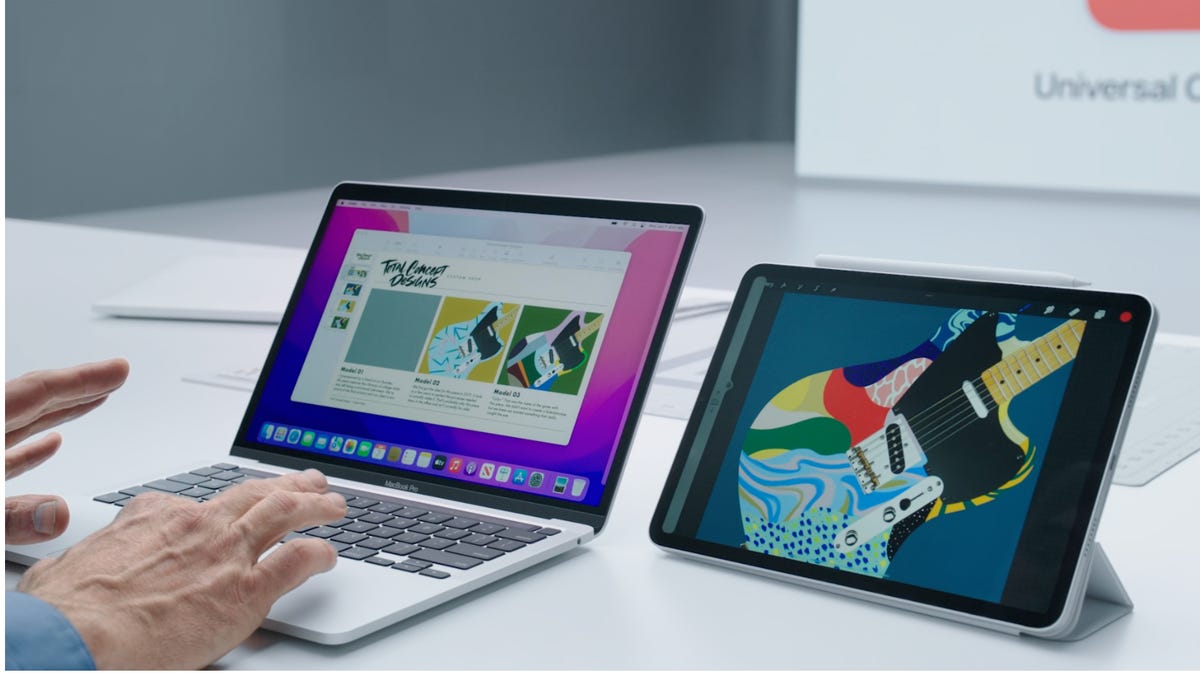MacOS Monterey: What you should know about Apple's latest Mac software update
Apple unveiled the latest version of MacOS at WWDC, showing off new features like Universal Control.

Apple's new universal control feature in MacOS Monterey will let you move content between devices by using your mouse and keyboard.
At its Worldwide Developers Conference on Monday, Apple executives unveiled MacOS Monterey, the latest version of the Mac's operating system, also known as MacOS 12. (Check out everything announced at WWDC 2021 here.)
MacOS Monterey follows last year's MacOS Big Sur. It includes new features like Universal Control, which will allow Mac users to use a single mouse and keyboard to move between your Mac and iPad for a seamless experience. It also includes AirPlay and a redesigned Safari browser with better sync features between devices. The OS also added in several of the new features found in iOS 15, like spatial audio in FaceTime and Apple's Focus feature.
Apple's MacOS, first released in 2001, powers the company's computers like the MacBook Pro, MacBook Air and iMac. Back when it was known as OS X, Apple co-founder Steve Jobs touted that it served as the basis for its iOS iPhone software. Over the years, Apple has focused on building apps and features for its MacOS that complement its other devices, including at first its iTunes software. It then brought over more mobile-centric apps like its iMessage communication service, FaceTime video chat and the App Store, which first launched in iOS.
Despite Apple's popularity, and the success of its iPhones and iPads, the company's Mac computers still only represent less than 10% of the computers being used today.
The M1 chip is helping to change that though. Apple said fans bought so many new M1 Macs that they helped push the company's desktop and laptop revenues to an all-time high of $9.1 billion during the first three months of 2021. That was up a whopping 70% from the same period a year earlier. "Keep in mind, in the five years prior to the pandemic, the Mac was essentially a flat business, growing on average 1% annually," Loup Ventures analyst Gene Munster wrote in May.
CNET's Ian Sherr contributed to this report.

